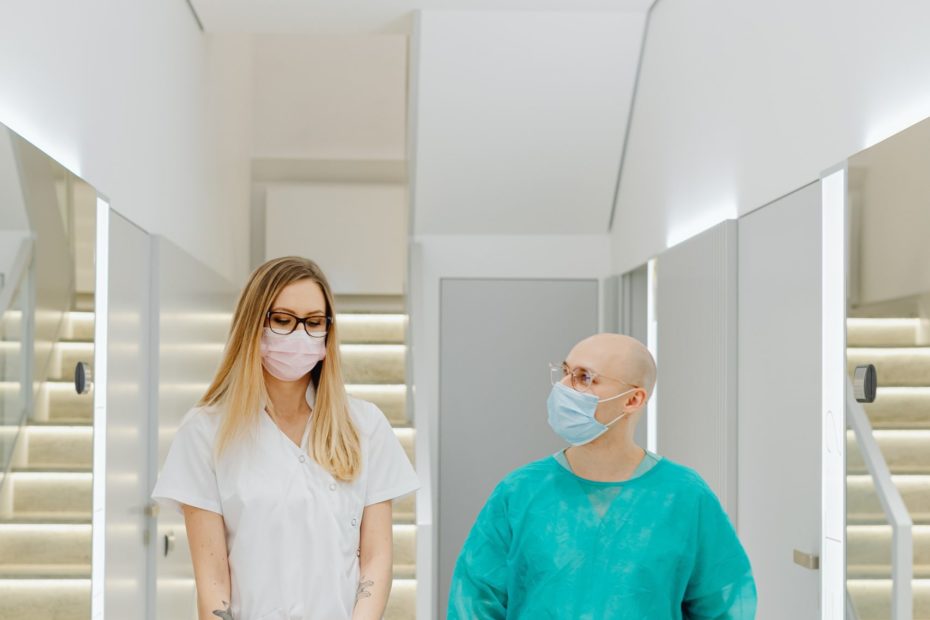According to the U.S. Bureau of Labor Statistics (BLS), nursing accounts for a significant proportion of employment opportunities in the health care sector in the United States. Generally, a nursing career pays well compared to other career paths in the health care industry. Nursing is a big service-based profession with different areas of specialization. Before you apply to any nursing school, it’s essential to choose a specialty. Read on to learn more about different types of nurses.
Emergency Room (ER) Nurse
Working as an emergency room nurse can be a daunting yet rewarding experience. ER nurses must possess top-notch critical thinking skills due to the fast-paced nature of the work. As an ER nurse, you’ll need to be familiar with aneurysm risk factors, given that you may have to administer first aid for a stroke.
As you might know, an aneurysm occurs as a result of the weakening of an artery wall. A ruptured cerebral aneurysm can cause symptoms like severe headache, seizure, and confusion. A ruptured brain aneurysm can also cause bleeding, which often leads to a number of chronic conditions, including stroke. As for an asymptomatic abdominal aortic aneurysm, it’s a little challenging to identify in its early stages.
When concerning recovery, an ER nurse can effectively help patients recover by paying attention to aneurysm risk factors. Cigarette smoking is arguably the most significant risk factor of cerebral aneurysms. An individual who has a history of smoking is susceptible to contracting an aneurysm. In addition, family history is one of the less-talked-about risk factors of an aneurysm.
Other risk factors include hypertension, high blood pressure, and heavy alcohol consumption. The presence of medical conditions like Marfan syndrome, Ehlers-Danlos syndrome, polycystic kidney disease, and fibromuscular dysplasia can also heighten someone’s risk. Knowing these risk factors makes it easier to diagnose and prescribe an effective form of screening. Computerized tomography (CT) scans and magnetic resonance imaging (MRI) are widely used for screening patients.
Licensed Practical Nurse (LPN)
Becoming a licensed practical nurse (LPN) certifies you to provide basic nursing care in a variety of health care settings. Also known as licensed vocational nurses (LVN), LPNs work under the direct supervision of a registered nurse or doctor. A licensed vocational nurse can assist patients in-home care situations and long-term care facilities. To prepare yourself for practical nursing career opportunities, you must get the education necessary to become a licensed practical nurse. Most LVN programs require your high school transcripts to ascertain whether you completed high school.
Consider applying for a volunteer or entry-level position at various doctors’ offices to gain exposure to the medical profession. This will look good on your application form. Also, endeavor to include a letter of recommendation in your LPN program application. As a rule, ensure you enroll in an accredited program. Check to ensure that the nursing program you choose has undergone systematic review and approval by the relevant accrediting commission.
Furthermore, you may decide to obtain an associate degree or a Bachelor of Science in nursing from reputable community colleges. Keep in mind that you’ll still have to sit for the National Council Licensure Examination (NCLEX-PN). So, don’t hesitate to contact the state board of nursing for a license that qualifies you to sit for the NCLEX-PN exam.
Pediatric Nurse
If you’re passionate about pediatrics and working with children, pediatric nursing seems like the best career path for you. Consider obtaining a Bachelor of Science in Nursing (BSN) degree. A BSN program usually takes four years. You don’t necessarily have to acquire a master’s degree or doctorate in nursing practice to work as a pediatric nurse. Nevertheless, obtaining higher education can qualify you to become a pediatric nurse practitioner.
To become a pediatric nurse, you have to become a registered nurse (RN). Some states require you to become a certified pediatric nurse (CPN) to practice as a pediatric nurse. While special licenses or certifications aren’t necessarily required to become a pediatric nurse, they can help you advance your nursing career. Furthermore, you need to have good listening and communication skills, considering that you will be working with children.




